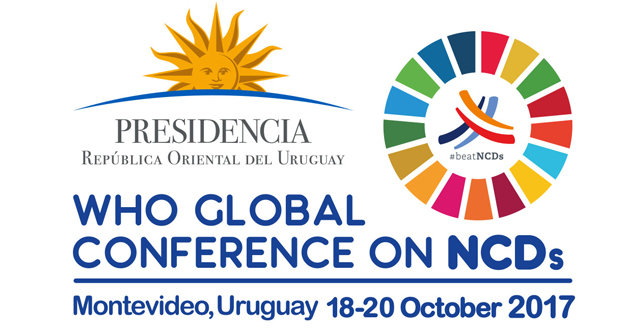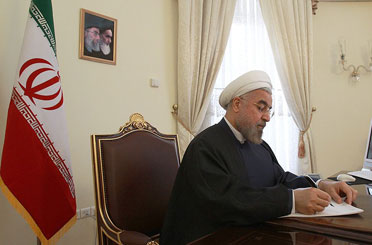Health a necessity for vibrant society: Rouhani

TEHRAN — Giving priority to health is necessary for creating effective policies in moving towards a vibrant society, said President Hassan Rouhani on Thursday.
He made the remarks in a message sent to World Health Organization (WHO) Global Conference on Noncommunicable diseases (NCDs) hosted by Uruguay from 18 to 20 October 2017 in Montevideo.
The message was read out in the presence of senior officials from more than 80 countries by Baqer Larijani, vice-president of the national committee on non-communicable diseases.
In this regard, efforts to create a public coverage of health and slashing health costs to the citizens are a matter of necessity that has been emphasized in the Sustainable Development Goals (SDGs) and been established in Iran as part of the Healthcare Reform Plan [a plan promoting healthcare coverage launched in Iran since May 2014], Rouhani explained.
Elsewhere in his remarks, Rouhani highlighted that “Our country has an effective governance mechanism called the Supreme Council for Health and Food Security, which, with the presidency of the President and the membership of nine ministers and heads of related organizations, implements the necessary inter-institutional cooperation and attention to health in all policies.”
“The adoption of a national document on the prevention and control of noncommunicable diseases over the past year and a half, along with inter-sectoral decisions related to the reduction of fat, sugar and salt use and increased tax on harmful substances, is one of the Council's measures in this regard,” he added.
Iranian president further pointed out Iran’s “coherent policies for controlling and preventing noncommunicable diseases sponsored by the World Health Organization” and expressed readiness to share the experiences with all countries, and reciprocally use world’s knowledge and experience to promote people's health.

In line with WHO’s activities to combat NCDs in 2015 Iran established a committee called National Non-Communicable Disease Committee at the Ministry of Health headed by the Health Minister, Hassan Qazizadeh Hashemi. There are also six subcommittees affiliated with this committee responsible for controlling cancer, cardiovascular diseases, metabolic disorders, air pollution and inter-sectoral collaboration, traffic injuries, and a subcommittee for monitoring and evaluating whole action plan for the NCDs.
The national plan was endorsed by the then Director-General of WHO Margaret Chan Fung Fu-Chun and WHO Regional Director for the Eastern Mediterranean Ala Alwan and it was very appreciated by other countries because the action plan is not just limited to one ministry and sector but to other sectors as well.
WHO Global Conference on Noncommunicable diseases 2017 goal is to highlight the critical links between reducing premature deaths from NCDs and enhancing policy coherence across areas that impact the governance, prevention, management and surveillance of NCDs.
According WHO in 2015, NCDs, including cardiovascular diseases cancer, chronic respiratory diseases and diabetes, were responsible for 40 million deaths, representing 70 percent of all deaths worldwide. A large proportion of deaths were premature. Regarding Iran the number is pretty much higher; 76 percent of the burden of the diseases comes from NCDs.
85 percent of premature deaths from NCDs occurred in developing countries, including 41 percent in lower-middle-income countries where the probability of dying from an NCD between the ages of 30 and 70 is up to four times higher than in developed countries. Most of these deaths from NCDs could have been prevented or delayed.
National policies in sectors other than health have a major bearing on premature mortality from NCDs. Health gains can be achieved much more readily by influencing public policies in sectors like agriculture, food production, pharmaceutical production, taxation, trade, and urban development than making changes in health policy alone.
MQ/MG
